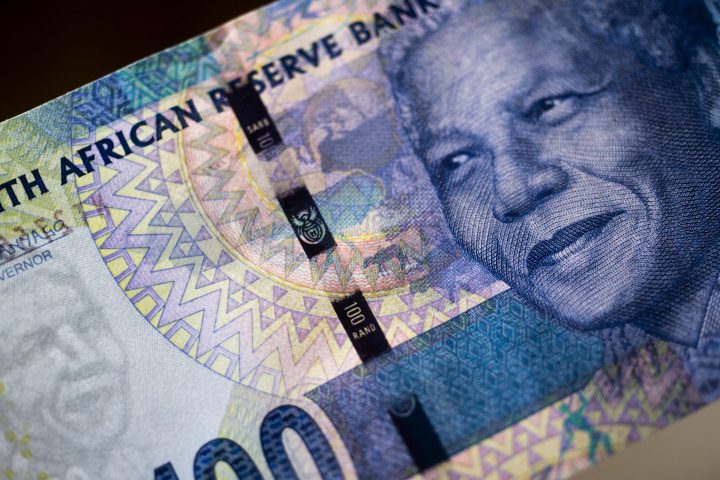Maverick Citizen Op-Ed
The road to a just recovery for South Africa: No going back to normal

Now is the time to identify a wide range of programmes to boost the long-term welfare of South African households and businesses. The urgent focus should be on building an inclusive economy underpinned by social ownership that generates decent, well-paying jobs.
Covid-19 is having an unprecedented impact on the global economy. As the world’s richest economies meet under the auspices of the G20 to discuss its effects for the third time this year, their attention must shift to the growing calls for a just recovery to address the economic fallout of the pandemic, as well as the other great global crises we face – climate change and obscene inequality.
The G20 meeting on 18 and 19 July will be a stage where those who control the purse strings of major economies will build consensus on how governments and banks should react to the challenges being faced globally. These choices will determine how much and for how long people will bear the brunt of the economic and social fallout of Covid-19.
At a time when an estimated 25 million people are expected to lose their jobs as a result of the pandemic globally, this grouping of ministers, which includes South African Finance Minister Tito Mboweni, needs to ensure that public funds are used to benefit the majority and not only the wealthy few.
This moment requires a different approach to economic decision making by the South African government. Mboweni’s emergency budget delivered a new wave of austerity, which experts warn will trigger the worst depression in a century, worsening unemployment and likely plunging the economy into even more distress. At a time when the political will to address high levels of inequality in the country is much needed, the minister’s pronouncements failed to lay out a path for a more just and equal society.
A recovery plan focused on stronger public institutions is needed
A report just released by 350.org, No Going Back to Normal, shows six ways in which public and economic policy should be reformulated to overcome, and not entrench, existing inequalities in response to the economic fallout of Covid-19.
In unpacking what needs to be done to realise a just recovery for South Africa, the Institute for Economic Justice insists on leveraging this moment to prioritise a transformative vision for our society – and not a “return to normal”.
The report is aligned to similar calls that are being made by The Cry of the Xcluded and the campaign for a Green New Eskom, and concludes that a just recovery can set South Africa on a path centred on climate justice while also transforming the deeply unequal nature of the country’s economy.
The pandemic is giving us a window into the types of problems we will face as the climate crisis takes hold.
In addition to direct state financing, local institutions such as the Development Bank of Southern Africa (DBSA) and the Industrial Development Corporation (IDC) can play a greater, more strategic role by reconfiguring their mandates to ensure that climate and social justice is incorporated.
Building resilience and sustainability in response to Covid-19 must be based on reducing greenhouse gas emissions and meeting the core needs of all – but within the means of the planet.
There are tremendous opportunities in creating resilience for future crises; in providing economic relief directly to the people; and building solidarity and community across borders, paving the way for future development.
Now is the time to identify a wide range of programmes to boost the long term welfare of South African households and businesses. There needs to be increased participation of various stakeholders in key decisions to reconfigure the structure of the South African economy. The urgent focus should be on building an inclusive and responsive economy underpinned by social ownership that generates more, decent, formal, well-paying, protected jobs.
The pandemic, the subsequent enforcement of a nationwide lockdown, and the need for physical distancing have increased household responsibilities such as domestic work, caring for the elderly, and childcare. This work is often largely unpaid and is gender-biased. A just recovery must prioritise this kind of work by socialising care and prioritising support for the most marginalised in the economy, by expanding care services and increasing employment opportunities for women.
The reality is that Covid-19 is exacerbating existing inequalities and, in response, recovery efforts must disrupt the gender norms that surround care work. We must see that this work is paid for and valued in the economy.
Mboweni must commit not simply to an economic recovery that continues to focus disproportionately on financial markets by using market-based solutions to solve social challenges. He needs to reformulate the emergency budget so that it can be a tool towards creating a sustainable, just and healthy society.
Financing this just recovery would require bringing in a budget focused on wellbeing, where an appropriate Covid-19 stimulus prioritises communities over corporate profits.
In addition to direct state financing, local institutions such as the Development Bank of Southern Africa (DBSA) and the Industrial Development Corporation (IDC) can play a greater, more strategic role by reconfiguring their mandates to ensure that climate and social justice is incorporated.
As the G20 finance ministers’ meeting kicks off later this week, we call on Tito Mboweni to realise that we cannot go back to business as usual and that public funds must be used towards a dignified, liveable future for all. DM/MC
Ahmed Mokgopo is the Africa regional campaigner at 350.org.


















 Become an Insider
Become an Insider